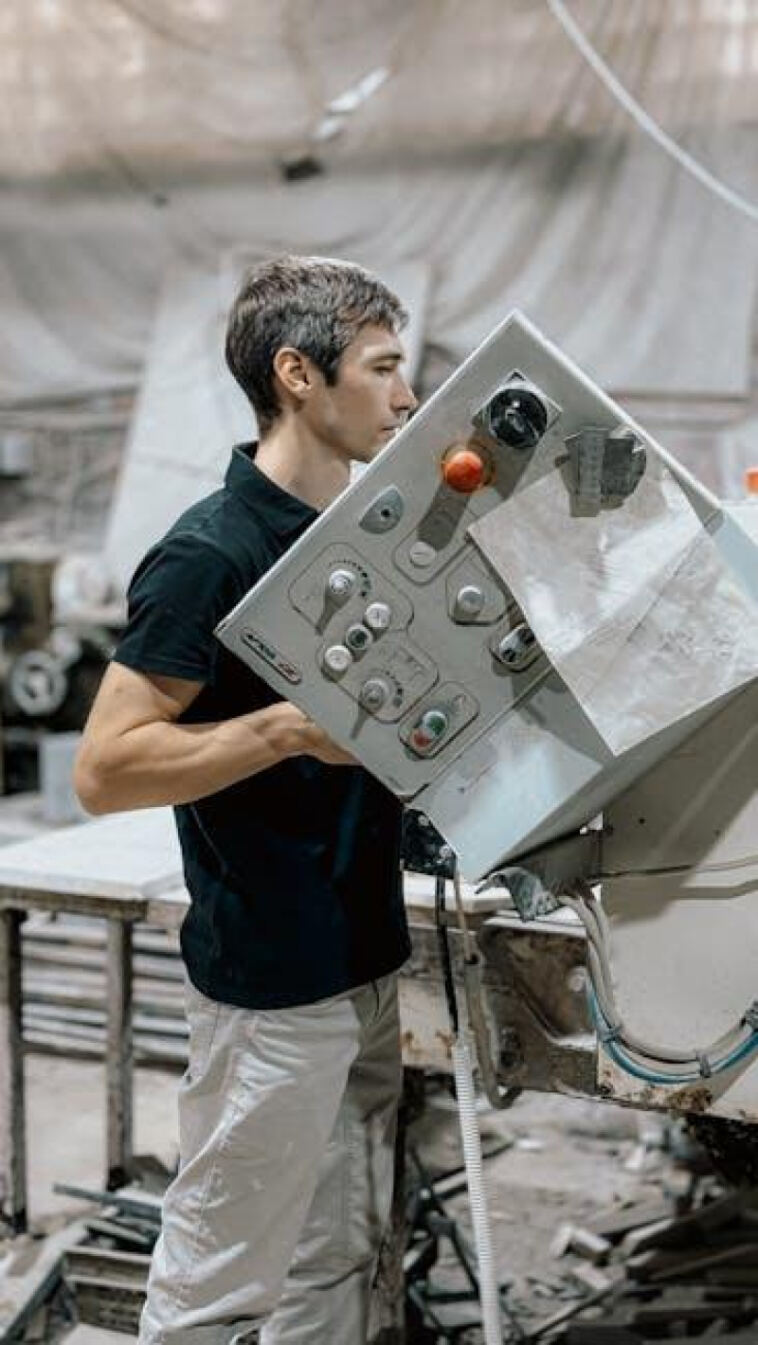- Like
- SHARE
- Digg
- Del
- Tumblr
- VKontakte
- Flattr
- Buffer
- Love This
- Save
- Odnoklassniki
- Meneame
- Blogger
- Amazon
- Yahoo Mail
- Gmail
- AOL
- Newsvine
- HackerNews
- Evernote
- MySpace
- Mail.ru
- Viadeo
- Line
- Comments
- Yummly
- SMS
- Viber
- Telegram
- JOIN
- Skype
- Facebook Messenger
- Kakao
- LiveJournal
- Yammer
- Edgar
- Fintel
- Mix
- Instapaper
- Copy Link
In a rapidly evolving industry, the future of cannabis production is being shaped by the integration of advanced automation technologies. As the demand for high-quality products continues to rise, producers are turning to innovative solutions to streamline their operations and optimize efficiency. Embracing automation in cultivation and processing processes holds the promise of unlocking new levels of productivity and consistency in the cannabis industry. Join us as we explore the cutting-edge developments transforming the way cannabis is grown, harvested, and manufactured in this exciting glimpse into the future of cannabis production.
The Growing Role of Automation in Cannabis Production
In the ever-evolving landscape of cannabis production, automation is playing an increasingly vital role in shaping the future of the industry. With advancements in technology and a growing demand for high-quality products, cannabis cultivators are turning to automation to streamline their production processes and improve efficiency.
Benefits of Automation in Cannabis Production:
- Increased Efficiency: Automation allows for tasks to be completed faster and with greater precision, resulting in higher yields and reduced labor costs.
- Consistent Quality: By removing the margin of human error, automation ensures that each batch of cannabis products maintains a consistent level of quality.
- Compliance: Automated systems can help cannabis producers adhere to strict regulatory standards by accurately tracking and documenting every stage of the production process.
Challenges in Implementing Automation:
- Initial Investment: While automation can lead to long-term cost savings, the upfront costs of implementing automated systems can be significant.
- Training: Transitioning to automated processes may require training employees to operate and maintain new equipment effectively.
- Integration: Integrating automation systems with existing infrastructure and workflows can be complex and time-consuming.
| Automation System | Key Feature |
|---|---|
| Grow Room Automation | Climate control for optimal plant growth |
| Harvesting Robot | Precision trimming and harvesting of cannabis plants |
| Automated Packaging | Efficient and accurate packaging of cannabis products |
Increased Efficiency and Precision Through Automation Technologies
Automation technologies have revolutionized the cannabis industry, paving the way for increased efficiency and precision in production processes. By embracing automated systems, cannabis cultivators and manufacturers can streamline their operations, reduce human error, and ensure consistent quality across batches. From automated watering systems to robotic trimming machines, the future of cannabis production is becoming increasingly automated.
One of the key benefits of automation technologies in the cannabis industry is the ability to scale operations without sacrificing quality. By implementing automated processes, companies can increase their production capacity while maintaining the highest standards of cleanliness and precision. This scalability is essential for meeting the growing demand for cannabis products, both domestically and internationally.
Furthermore, automation technologies allow cannabis businesses to optimize resource utilization and minimize waste. By accurately monitoring and controlling variables such as temperature, humidity, and nutrient levels, automated systems can help maximize yield and reduce the risk of crop loss. With automation, cannabis producers can achieve greater efficiency, profitability, and sustainability in their operations.
| Benefits of Automation Technologies in Cannabis Production |
|---|
| Streamlined operations |
| Reduced human error |
| Consistent quality |
Challenges and Opportunities for Cannabis Producers
One of the biggest challenges faced by cannabis producers today is the need to increase efficiency and productivity while maintaining quality standards. This is where automation in production can play a crucial role. By embracing automation technology, producers can streamline their processes, reduce labor costs, and improve overall output. With the right automation tools in place, cannabis producers can also ensure consistency in product quality, minimize human errors, and meet growing market demands.
Automation in production also presents exciting opportunities for cannabis producers to scale their operations and stay competitive in the rapidly evolving industry. By implementing automated systems for tasks such as planting, watering, trimming, and harvesting, producers can maximize their yield, optimize resource utilization, and drive profitability. Additionally, automation allows producers to collect real-time data on plant growth and environmental conditions, enabling them to make informed decisions and continuously improve their cultivation practices.
| Challenges | Opportunities |
|---|---|
| Increasing efficiency | Scaling operations |
| Maintaining quality standards | Improving productivity |
| Reducing labor costs | Optimizing resource utilization |
In conclusion, the future of cannabis production lies in the integration of automation technologies. By embracing automation, producers can overcome challenges, seize opportunities, and thrive in a competitive market. From small-scale operations to large commercial facilities, automation in production is the key to unlocking the full potential of the cannabis industry.
Key Recommendations for Integrating Automation in Cannabis Cultivation
As the cannabis industry continues to grow and evolve, it is essential for cultivators to embrace automation in production to increase efficiency and quality. Here are some key recommendations to consider:
- Invest in modern technology: Incorporating state-of-the-art automation systems will help streamline various processes in cannabis cultivation, from watering and feeding plants to monitoring environmental conditions.
- Implement data-driven solutions: Utilize data analytics to gather insights on plant growth, optimize resource allocation, and make informed decisions to maximize yield and quality.
- Train staff effectively: Provide comprehensive training to employees on how to operate and maintain automated equipment, ensuring smooth integration and efficient operation in the cultivation facility.
| Technology | Benefits | Recommendation |
|---|---|---|
| Automated irrigation systems | Consistent moisture levels for plants | Invest in high-quality systems |
| Environmental monitoring sensors | Optimal conditions for plant growth | Integrate sensors for real-time data |
| Harvesting robots | Efficient and precise trimming | Train staff on operation |
Embracing Innovation: The Path Forward for Cannabis Industry
As the cannabis industry continues to evolve, embracing automation in production is essential for staying competitive in the market. Automation not only streamlines processes but also ensures consistency in product quality and compliance with regulations. By incorporating automated systems in cultivation, harvesting, and extraction processes, companies can increase efficiency and reduce costs.
Advantages of Embracing Automation in Cannabis Production:
- Improved quality control
- Increased productivity
- Enhanced safety measures
- Cost savings through reduced labor expenses
| Automation System | Benefits |
|---|---|
| Cultivation | Optimized nutrient delivery for plants |
| Harvesting | Efficient and precise trimming |
| Extraction | Consistent potency in final products |
By embracing innovation and automation, the cannabis industry can continue to thrive and meet the growing demands of consumers. From seed to sale, implementing automated processes can revolutionize the way cannabis products are produced and distributed. The future of cannabis lies in embracing technology to drive efficiency, quality, and sustainability in the industry.
Q&A
Q: What is the future of cannabis production looking like?
A: The future of cannabis production is set to embrace automation in order to increase efficiency and streamline the production process.
Q: How will automation impact the quality of cannabis products?
A: Automation in production will ensure consistency in quality and potency of cannabis products, as machines can precisely control variables such as light, temperature, and nutrients.
Q: How will automation benefit cannabis farmers?
A: Automation will allow cannabis farmers to increase their yield and reduce labor costs, ultimately making the production process more sustainable and profitable.
Q: What are some examples of automation technologies being used in cannabis production?
A: Some examples of automation technologies being used in cannabis production include automated irrigation systems, robotic trimmers, and AI-powered monitoring systems.
Q: Are there any concerns about embracing automation in cannabis production?
A: Some concerns about embracing automation in cannabis production include potential job displacement for manual laborers and the need for regulations to ensure product safety and quality control.
Q: How can cannabis businesses ensure a smooth transition to automated production?
A: Cannabis businesses can ensure a smooth transition to automated production by investing in training for their employees, conducting thorough research on automation technologies, and staying updated on industry best practices.
Concluding Remarks
As the cannabis industry continues to evolve, the integration of automation in production is poised to revolutionize the way we cultivate and process this versatile plant. From precision planting to robotic trimming, the possibilities for increased efficiency and quality are endless. Embracing automation opens the door to a future where cannabis production is not only more sustainable, but also more innovative and accessible than ever before. Join us as we explore the exciting potential of automation in shaping the future of cannabis.


